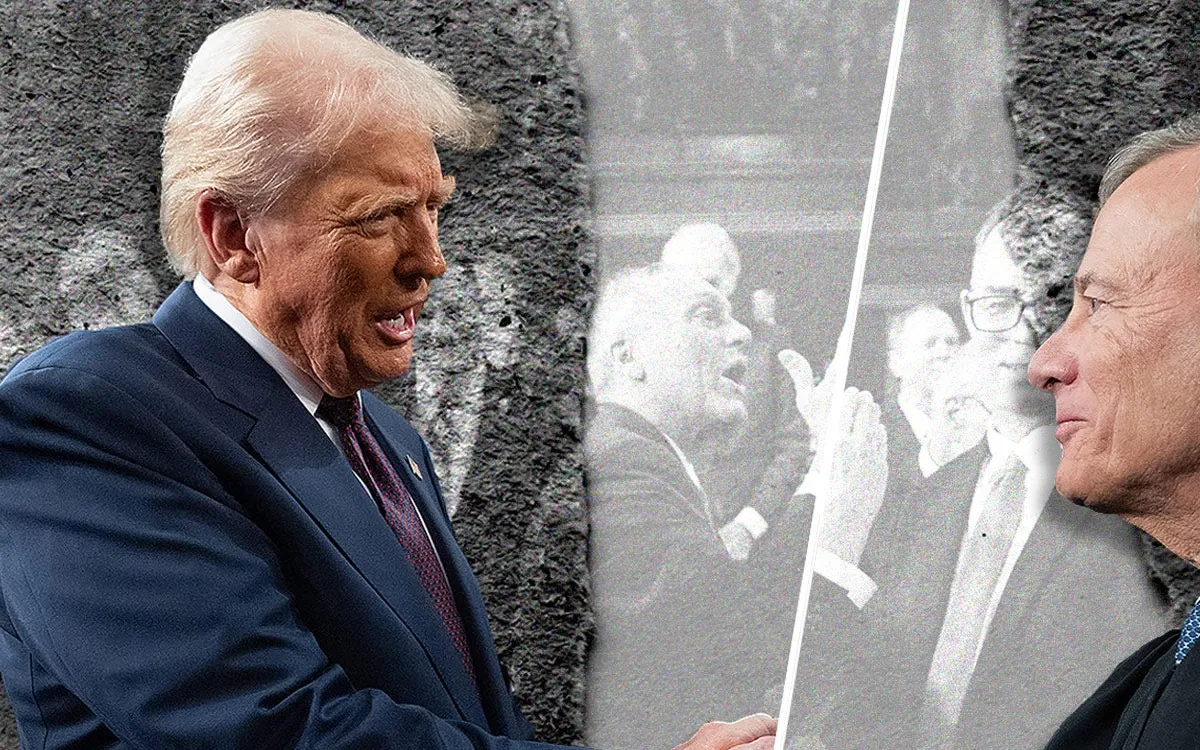
In recent days, the Trump administration has demonstrated a remarkable ability to irritate Chief Justice John Roberts. The ongoing situation surrounding the Alien Enemies Act case has escalated into a multifaceted confrontation aimed at undermining the credibility of Judge James Boasberg, who presides over the case. Rather than focusing on winning the case through legal merits, the administration has embarked on a campaign to attack the judge's integrity and competence, marking a distinct struggle between the executive branch and the judicial branch.
The tactics employed by the Trump administration appear to prioritize winning in the court of public opinion rather than securing a favorable ruling from Chief Justice Roberts. The administration's strategy includes rapid deportations of Venezuelan migrants, whom they have accused, without solid evidence, of connections to the Tren de Aragua gang. In invoking the Alien Enemies Act of 1798, the administration has asserted that the courts lack the authority to intervene in their operations. When Judge Boasberg ordered a halt to these deportations, high-ranking officials within the administration publicly criticized him, with Trump and Elon Musk calling for Boasberg's impeachment.
In a show of judicial defiance, the Department of Justice (DOJ) has openly challenged Boasberg's authority. For instance, when the judge ordered the return of planes transporting migrants to El Salvador, the government allowed some planes to continue to their destinations, disregarding his directive. During a subsequent hearing to investigate this disobedience, the DOJ exhibited a contemptuous attitude, claiming that Boasberg lacked the power to issue such orders. Their response was characterized by a series of outrageous claims, including an attempt to delay the hearing and a request to reassign the case, which is generally considered a last resort in federal court.
The DOJ's communication with Judge Boasberg has crossed lines typically reserved for more respectful interactions. The lawyers representing the United States have made derogatory remarks about the judge's capabilities, accusing him of conducting unnecessary investigations. They characterized the judge's queries about the government’s flight schedules as “a picayune dispute,” dismissing the relevance of the information sought. Such treatment is unusual for attorneys, especially those representing the government, and could warrant sanctions. Yet, in a rare display of restraint, Judge Boasberg opted to remind the DOJ of their responsibilities, allowing them additional time to respond to his inquiries.
The tone of the DOJ's filings indicates a deliberate attempt to portray Judge Boasberg as a rogue figure in need of correction from a strong presidential hand. Attorney General Pam Bondi's recent comments highlight this narrative, suggesting that Boasberg is endangering national security by protecting migrants. However, these claims lack substantiation, as there is no evidence linking the accused individuals to terrorist activities.
In a striking counter to the administration's narrative, Chief Justice John Roberts has publicly defended Judge Boasberg. Roberts appointed Boasberg to the Foreign Intelligence Surveillance Court and the U.S. Alien Terrorist Removal Court, positions that require a high level of trust in the judge's abilities to handle sensitive information. His defense, albeit brief, underscored the principle that impeachment is not an appropriate response to judicial disagreement, emphasizing the importance of the normal appellate review process.
The ongoing conflict raises significant questions about the administration's intentions. One interpretation is that the Trump administration is willing to alienate Chief Justice Roberts, believing it can pressure him into compliance with its agenda through public scrutiny. A more alarming possibility is that the administration is laying the groundwork for future defiance of Supreme Court rulings should they not align with Trump's objectives. This scenario might foreshadow a broader disregard for judicial authority, with the current defiance of Judge Boasberg serving as a template for potential future actions.
The situation surrounding Judge Boasberg and the Trump administration illustrates a critical moment in the relationship between the executive and judicial branches. Chief Justice Roberts' intervention signifies the importance of judicial independence and the need for respect within the legal system. As this conflict unfolds, it is essential to monitor the implications for the future of legal governance in the United States.